I know very little about this very attractive blonde, but she definitely impresses with her kung fu in Fun and Fury, In the Line of Duty 5, Midnight Angel, Live Hard, Police Story III, How to Meet the Lucky Stars, Queens High and Oh Yes Sir. Ms. Penn is currently the National Director of the International Bodyguards Association for Hong Kong SAR/ China and is a retired World Karate Champion. It was recently announced that she and Lee Majors will be in a TV pilot produced by New Line as a father/daughter bodyguard team.

Bringing a slashing high vitrol energy to his films, Kirk Wong was - even with a relatively small output - one of the more influential directors/producers in the 1980’s and 90s. His 1981 The Club with Michael Chan is considered one of the forerunners of the Heroic Bloodshed films that were to follow in the 80’s. This was followed by the controversial Health Warning in 1983, Gunmen in 1988, Crime Story in 1993 (in which he fought continuously with the star Jackie Chan – but in fact got out of Chan his best dramatic performance ever) and then the double blast in 1994 – Organized Crime and Triad Bureau and Rock N’ Roll Cop. The tough, brutal cops in his films have raised the hackles of many a libertarian. Then there are the brutal Category III films that he has produced - Love to Kill, and Police Confidential...He also can be counted as yet another HK “action director” who moved on to Hollywood, where he directed The Big Hit (a film that actually does NOT star Jean-Claude van Damme!).
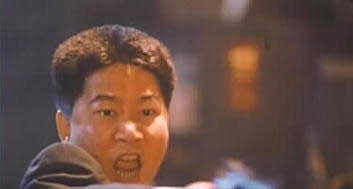

This tough, imposing actor appeared in some HK films during the 80’s - almost always cast as a top member of a triad – but earlier in his career he was one of the major leading male actors in Taiwan during the 60’s and 70’s. Once he got a bit older though, he moved into character parts.

Kong was the poor fellow in the Chingmy Yau film I am Your Birthday Cake (1995) who had to lust for her from his wheelchair. A few other films in his smallish filmography – The Real Me (the main protagonist), To Live and Die in Tsimshatsui, Lamb Killer and Running on Empty.

Born in Shanghai on 01/07/73
One of the more attractive and appealing actresses over the last few years is this former Miss Asia who radiates a sweet gentleness and the girl next door kind of beauty. She attended school in Toronto, Canada and had been accepted into a degree program by York University but opted after winning Miss Asia to instead go to Hong Kong and work for its ATV channel.

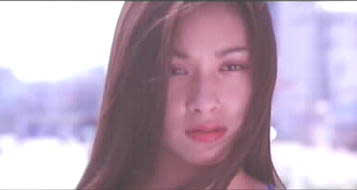
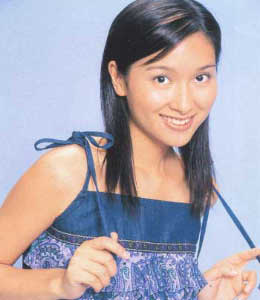
Born in 1930 in Shanghai
This veteran actor began his career as one of the top performers during the kung fu period of the 70’s appearing in a vast number of films (usually as a villain) – and many of them are considered to be classics. Some of his films from this period are – Boxer from Shantung, Flying Guillotine, Brave Archer, Ten Tigers from Kwangtung and 36 Crazy Fists. He began as a singer at fairgrounds in Beijing, but later moved to Hong Kong and began acting. He was signed by Shaw Brothers in 1965 and was almost immediately able to get roles in classics such as Come Drink with Me, The Twin Swords and Temple of the Red Lotus.

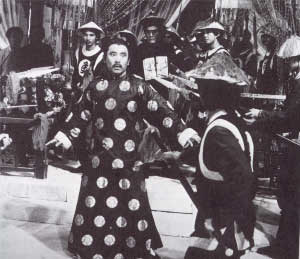

(Information and writing provided by Yves Gendron).
This Japanese actress with the gymnast background captured a few hearts in her only HK film role in Jackie Chan’s City Hunter. From what I have read she performed a lot of her own stunts for that film.

This almost always bearded rotund actor has had supporting roles in many films – Robotrix, Made in Heaven, Friday Gigolo, Triad Story, My Dad is a Jerk, Four Loves and Money Laundry (2000) being a few of them.

Though HK fans may not be familiar with his name every one has seen this veteran actor’s face in many films. As a supporting actor he has been playing good guys and bad guys since the 1960s.
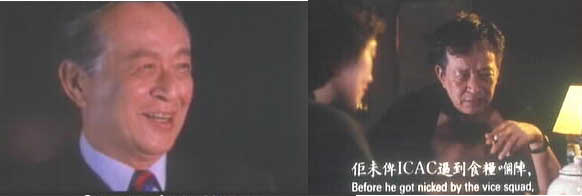
Born in 1933 in China
Best known these days perhaps as the father of actress Rosamund Kwan, he was a top dramatic leading man in the late 50’s through the 1960s. Back in the 1950's, Kwan was the first actor from HK to win a Best Actor Award at a European Film Festival. Some of his Shaw Brothers films have recently been released on DVD - Love without End, Love Eterne, Vermillion Door, The Blue and the Black. In these films he tends to play the sensitive male lover - often looking a bit wimpy by today's standards.

After his leading man days were over by the mid 70’s, he continued making sporadic appearances as a supporting actor in some terrific films. Some of these were Dream Lovers (the father of Brigitte Lin), Lady in Black (Tony Leung Ka Fai’s boss), A Better Tomorrow II, Police Story II (President Fung), Executioners (as both the President and his double), Red and Black and Wonder Seven.

Born in 1906 – Died in 1996
Kwan Tak-hing is in every sense of the word – a legend. To a large degree the modern day martial art film can be traced back directly to him. Before he was to appear in his first Wong Fei-hung film, the martial arts performed in films were more Chinese Opera than they were martial arts. Kwan changed all that though – he was a martial artist (as well as trained in Chinese Opera) and brought authenticity to his fight scenes that were never there before. Everything that came after was built on what he began.
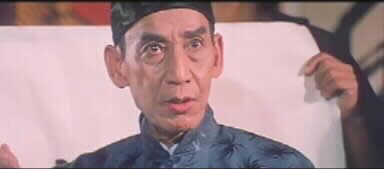
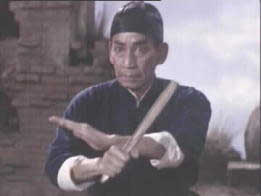
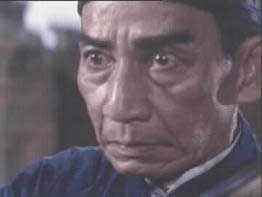
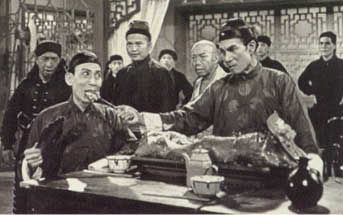
Of course, most of his Wong Fei-hung pictures are impossible to get in any format – but you still have the opportunity to watch an amazingly swift and limber Kwan in his late sixties in films such as Skylark (1974), the Magnificent Butcher in 1979 and Dreadnaught in 1981. There are also a few scenes of his Wong Fei-hung films added as a special feature in the Once Upon a Time in China DVD.
Kwan’s last film appearance was as the grandfather of a dysfunctional family that eventually learns to be a good one in It’s a Wonderful Life (a 1994 HK Chinese New Year film that bears little resemblance other than in terms of title from the James Stewart Christmas classic). Although he was nearly 90 years old then, he was still spry enough to fight off a group of toughs who were making fun of his character’s daughter-in-law. It doubtlessly added to the scene that the Wong Fei-hung theme was heard in the background as he went into action.
Here is some further very interesting information on Kwan Tak-hing written up by Yves Gendron.
During WWII Kwan led a Cantonese Opera company that toured throughout southern China entertaining the Chinese troops and propagandizing against the Japanese. A price was put on his head and torture and death was a sure thing if he was ever captured. His effort earned him the nickname "Patriotic Entertainer", and the great fame and repute he gained as he result of his war-time activities are said to have been instrumental in him gaining the part of Wong Fei-hung later on.
Kwan was a master in the "White Crane School", although his first training was in "hung kwun" (the martial art school which the original Wong fei-hung was a master). Kwan also excelled in pole, lion dance and the bullwhip. Throughout the film serial duration he learned and trained in every technique the original Wong Fei-hung practiced. At one point Kwan even came up with a "form" of his own named the "Omni-directional Gangrou fist". Kwan also was considered an outstanding calligrapher, and since he later opened a herbalist clinic in the early sixties it must be assumed he knew something of the healing art.
Strangely enough for someone who came to represent the quintessential traditional China spirit and virtues, Kwan had a deep affinity for America. He was a devotee of the American western, and named Hollywood silent era action star Douglas Fairbanks as his favorite actor. As his second wife was of Sino-American origin, today his ashes rest beside her in America.
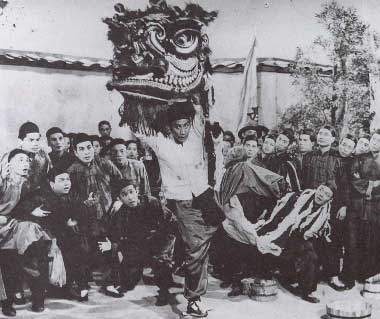
|
|
|
|